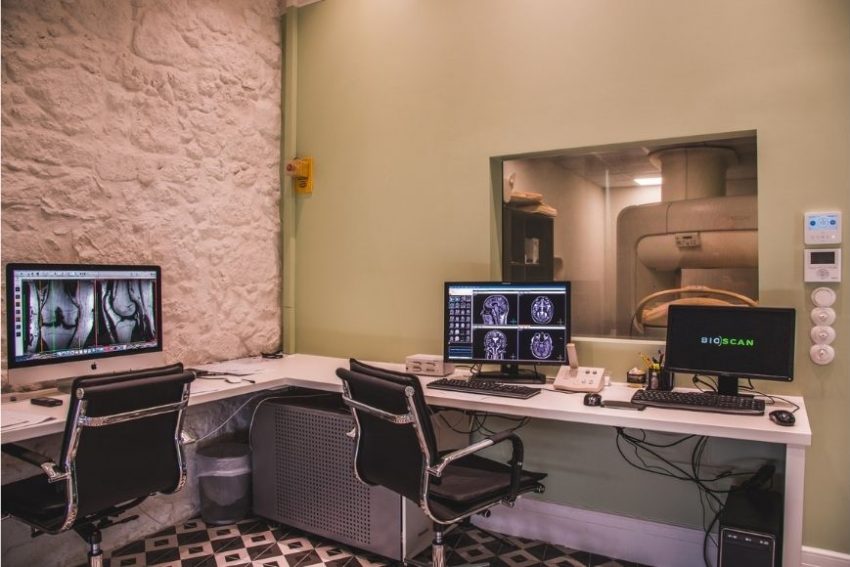The Bioscan CT Department is equipped with a state-of-the-art Siemens multislice CT scanner, offering speed and diagnostic accuracy to all exams performed.
The CT scanner has special advanced software for minimum radiation dose (Care dose 4D), even in children, while its high resolution permits excellent diagnosis, even when pathological problems are at an early stage.
How is a CT scan performed
You will first be asked to remove any metal objects you may have on you, as the metal may affect the results of the scan. Then you will be asked to lie on a bed, which slowly slides towards the head of the CT scanner, while you must remain absolutely still. The scan is minimally invasive and painless, with a short duration. After the end of the exam, you may return to your normal activities.
Simple CT Scans
The following conventional body scans are performed at the CT Department:
- Brain CT
- Head CT
- Neck CT
- Chest CT
- Abdominal CT
- Musculoskeletal System CT
- Pediatric CT
CT Angiography
It is a non-invasive method that is used to investigate stenotic, obstructed, dilated or abnormal arteries or veins. The following CT angiographies are performed at Bioscan:
- Brain angiography
- Carotid artery angiography
- Thoracic aorta angiography
- Abdominal aorta & iliac artery angiography
- Pulmonary artery angiography
- Upper & lower limb angiography
- Lower lib, iliac vein and inferior vena cava angiography / venography
Special CT Scans
Temporomandibular joint CT
The temporomandibular joint CT is a useful scan that is used to diagnose arthritis, injuries and asymmetry of the lower jaw, and condylar hypoplasia or hyperplasia, as well as evaluate jaw movement.
Lower and upper jaw dental scan
A lower and upper jaw CT (dental scan) is a modern technique that analyses the jaw three-dimensionally, allowing for detailed imaging. Through a dental scan, the doctor can analyze each jaw separately, measure its height and width, and also evaluate the quality and hardness of each jaw bone.
Compared to a conventional panoramic X-ray, the dental scan is better at mapping accurately and in detail lesions of the jaws and neighboring structures, a diagnosis that is pivotal in planning individualized treatments for implant placement. The dental scan is also recommended in cases of impacted teeth (canines, wisdom teeth), cysts, apical lesions not evident in a panoramic X-ray, etc.


